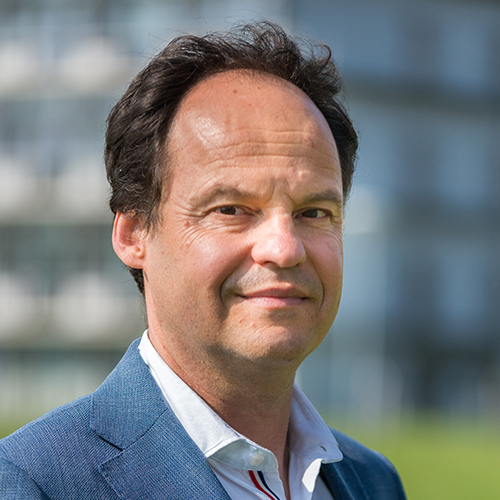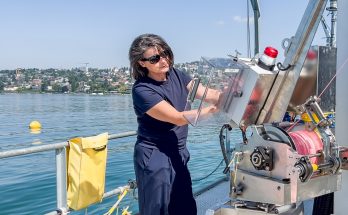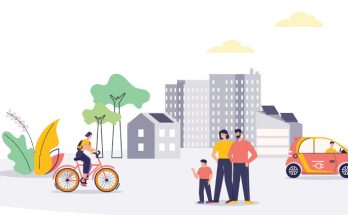Cette publication est également disponible en :
![]() Français
Français
How did waste management change during the current pandemic ? René Véron and Swetha Rao Dhananka work together since more than ten years in South Asia. Now they initiate an SNSF-SPIRIT project in Nepal and Sri Lanka to evaluate COVID impact on urban resilience, sustainability, decent work conditions and gender equality.
What is your goal in this project?
Swetha Rao Dhananka: We submitted the first version in spring 2020, it was the first wave of COVID and at that time nobody anticipated that it was going to prolong, going to take so many different forms. We want to understand what happened during the COVID pandemic in terms of waste management and what will happen after it, to apprehend the longer-term impacts on governmental and municipal waste policies.
René Véron: Changes can take place at the household level, because waste services are less available – people start segregating waste more, look for some ways of stocking waste in their home.
The changes can also happen at the level of waste collection. We want to look at how the situation of waste workers – both formal and informal, both men and women – have changed during the pandemic and what the ramifications are after the pandemic.
And finally, we are interested in the policy level. From a previous project, we know quite a bit about the waste discourses at the policy level, about laws around it, guidelines on how to deal with waste. Now we want to figure out whether this crisis has an impact on laws, on policies, even on how policy makers talk about the waste problem.
“We think that crisis moments change something: they change practices, and they might also change policies in the longer run. Our project is trying to look at these changes.”
René Véron
Why are you interested in waste management as a research topic?
René Véron: First, it is an environmental issue. It is important in the Global South particularly, because improper waste management is polluting soil, water, even air. It clocks drainage canals and can even lead to methane emissions from unsanitary dumps.
It is also a social issue. Lots of livelihoods are linked to scavenging, waste picking, often under risky and unhealthy conditions.
“Most studies in waste management are done by engineers and are of very technical nature. Technologies exist but they are difficult to put into place, because there is no political will, or because it replaces or dislocates labour – particularly in the informal sector. All these issues must be taken into consideration.”
René Véron
The third point is more methodological and practical. Talking about waste, which appears to be such a technological, technical issue, allows us to easily start a conversation with policy-makers and NGO representatives. It appears to be a neutral topic that one is quite ready to talk about. It acts as a good entry point for discussion and to access particular stakeholders.
Most people see the relevance of waste management, but most people see it as a purely technical issue. I have been approached by people who come with technical solutions, for plastic waste for instance. I always have to hold them back: “yes, on paper, in your lab, with your trial this can work very well. However, in a different cultural, social, and political context, particular solutions might not work at all.” Before recommending particular technical solutions, one needs to engage with stakeholders, asking how they see the problem, how they see solutions, whether they have already tried particular technical solutions, what they have learnt from success, but also from failure. Our job as social scientists is to engage in those questions.
“Waste tell us so much about the society and about the polity. It is quite obvious that the amount and types of waste are reflective of our consumer society. Perhaps less obvious is that the way we treat waste, how we manage it, tells us a lot about social inequalities. Who, what type of population is exposed to waste? And what population are protected from contact with waste?”
René Véron
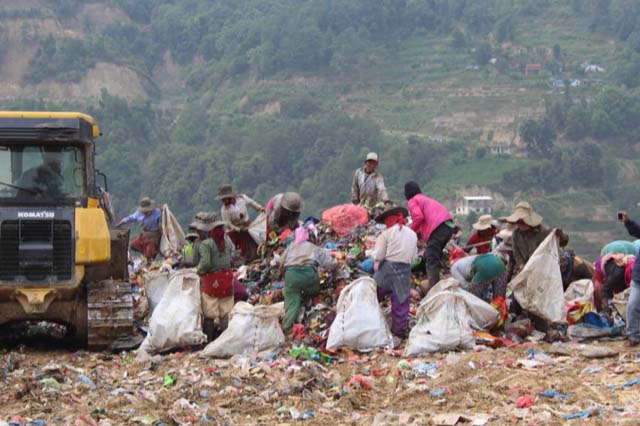
How did you start working together with René Véron?
Swetha Rao Dhananka: I was a bit isolated on my thesis topic – housing for the urban poor in India – when I worked as an assistant and PhD student at the UNIL Institute of Political Studies in the Faculty of SSP. I learned that Prof René Véron was engaged at FGSE, so one fine day I knocked on his door!
Since 2019 we co-lead the cluster of collaboration Knowledge2Action in South Asia – a project financed by swissuniversities. The idea of this cluster is to bridge scientific output to action relevant engagements. Among other activities, we have conceived “small grants” in order to produce creative means of science communication and community action: it can be a comic, a film or a form of community engagement. It is an avenue where research results can be transformed into something usable and pertinent for the concerned communities.
We have been working together in one or another way for the last 10 years. Now we have the chance to be formally in the same project. It will be a great experience.
The SPIRIT instrument puts an emphasis on gender awareness. Is this an important aspect of your project?
René Véron: Waste doesn’t really seem related to gender, but it is. Already in the household, in South Asia, waste practices are the responsibility of women, to a very large extent. So in a crisis like COVID, where waste services are less accessible, women are the ones who invest more time in segregating waste and bringing waste away. This can have an impact on gender relations within the household. We hope, thanks to this project, that we will have some answers to these guesses.
At the policy level, waste measures are very gender blind. We want to figure out how we can convince policy-makers to include the gender dimension. Just a small example. If we promote waste segregation at the source, which is the basis of all good solid waste management, we have to be careful not to put an additional work burden on women.
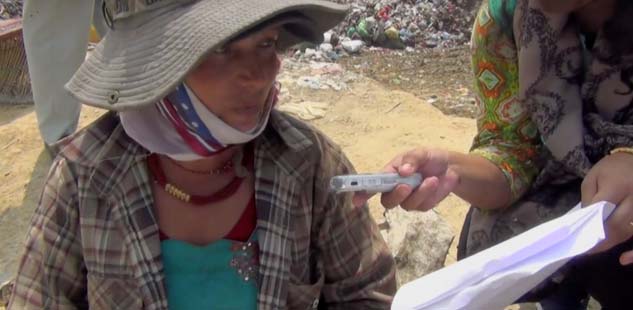
How do you identify, contact and interview key people in such a project?
ReRené Véron: Our team is in a unique position, because we already have worked in that field in the two locations (the Kathmandu Valley in Nepal and Greater Colombo in Sri Lanka). We know how people managed the waste before the crisis. Our local research partners are in constant touch with the stakeholders involved in waste management: politicians, bureaucrats, private enterprises, cooperatives of the informal sector, unions. With this SPIRIT project, we “merely” have to recontact people we already know.
“Negotiating access in the local situation of lockdown or limited mobility is going to be a challenge. But we believe that with very good and experienced local partners that we have, we will probably find some creative ways. Adaptability is the greatest imperative for researchers at this time.”
Swetha Rao Dhananka
How will you collaborate with the teams in Nepal and Sri Lanka? How do you work together?
René Véron: Such a project is very difficult – and maybe even unethical – to carry out when you are sitting in the global North or send people to do some field work there. It is increasingly acknowledged that one has to seek research partnership in the South. We have been doing so for quite some time. For this project we are lucky to have already an existing team in Nepal and Sri Lanka.
What is important is to meet up regularly. That is not always possible in person – particularly during the COVID time. However, project meetings in person are key, because during those times we can discuss joint methodologies, think about conceptualisations that are important for the research, make sure that everybody has the same understanding of the topic. We can also co-create new topics, new concepts together.
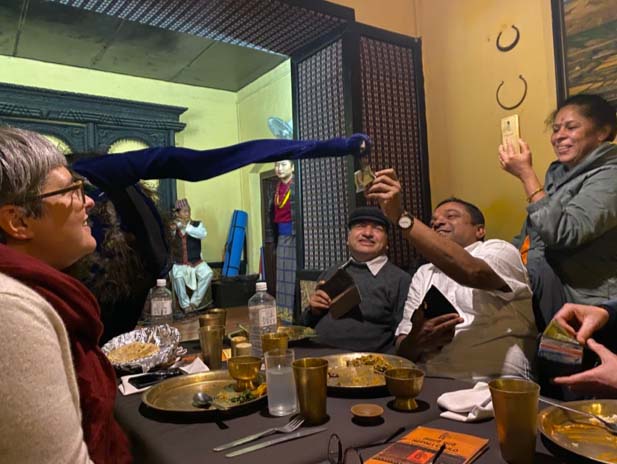
What can Switzerland learn from South Asia?
Swetha Rao Dhananka: Informality is often looked upon as something bad. But the informal sector can be seen as an inclusive and sanctuary place for poor people coming into cities. They get livelihood opportunities. Southern cities are drivers for what is called frugal innovation, adaptation to new places with the resources that are available. With the increasingly urbanising world, increasingly mobile world, this is relevant all over the world.
In Europe we also increasingly face issues, like undocumented migrants. There may be some answers to seek about how to give them decent livelihood opportunities.
René Véron: One often hears that waste management is particularly a problem for the country of the Global South, that they do not have proper technology, proper systems in place, and that here in Switzerland things are well organised, no need to research on waste or to have examples from elsewhere. I would contradict this view.
The amount of waste we produce is huge. In comparison with Nepal, we can learn a lot from how they reuse, recycle particular products. Just one example, very small things are recycled: zippers are taken out of the general garbage and put back to use in their full form. Not melted as metal, decomposed in elements, but as a full zipper. Of course, that involves the exploitation of labour, the conditions are not hygienic, and that would not be possible in our context, with our salary costs. However, this system gives us pause for thought.
You have extensive experience in international collaboration with countries in the global South. What advice would you give to young researchers who would like to embark on such projects?
Swetha Rao Dhananka: I am very fortunate because I have a South Asian background. I am very admirative of young researchers who are willing to immerse themselves in a new culture. As a piece of advice, I would say a lot of patience, a good portion of humour. We are so used to working online now… However, a good face-to-face exchange, a good laugh, knowing the person more holistically, beyond the role of researcher, has a big impact on the quality of the relationship one can develop. One issue that we have to be sensitive to is the lived social hierarchy, in universities in South Asia, which might be a bit different from here. Especially younger researchers are faced with different types of pressures. Understanding the underlying tensions are very important to have a smooth collaboration.
René Véron: One very important thing is to stay very modest, definitely not trying to make recommendations very quickly. However, I think we bring another perspective. Not a better one, but a different one. For young researchers, it is good to connect to other young researchers of the region, to exchange and share things. There are lots of commonalities, generational similarities, everybody is on social media: there are many things people can connect with. In a globalised world, the category global North and global South do actually no longer make much sense.
